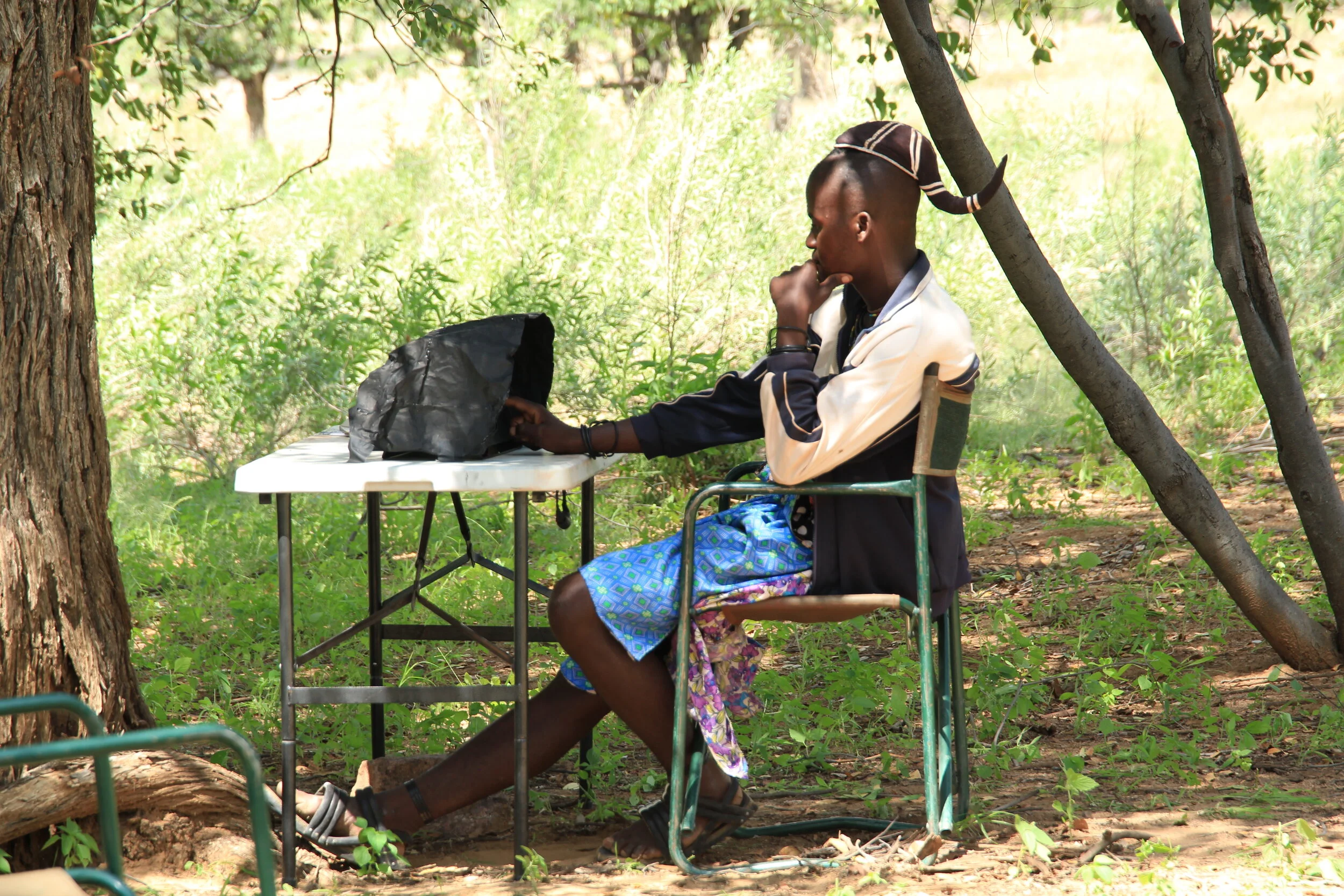Cross-Cultural Influences on Cognitive Flexibility
Research Goals
The primary aim of this research focus is to explore how variation in resource predictability affects cognitive flexibility. Our current understanding of human cognitive flexibility assumes that it is the same for all humans; yet clearly this is not the case. The goal of this project is to reassess and expand our understanding of cognitive flexibility by measuring it, not as a simple measure of rule-switching but as a multi-faceted construct. A task set, comprised of optional-switch, forced-switch, innovation, and creativity measures, will be conducted with three populations which experience varying degrees of resource uncertainty. This project is funded in part by the Leakey Foundation.
Importance to The Study of Human Origins
Himba child in Koakoland, Namibia - Photo by Aparicio (‘Chinho’) Lopez
Consistent with other great apes, early humans relied on hunting and foraging for survival. Indeed, the introduction of agriculture, pastoralism, and eventually market economies comprises an incredibly small sliver of human evolution. Resource attainment is a critical goal of human behavior; however, the majority of our evolutionary past is characterized by high-risk hunting and seasonally variable foraging techniques.
Though extant foragers are not relics of the past, their subsistence strategies, and the cognitive processes associated with these strategies provide a framework for understanding how flexible problem- solving may have adapted to, and perhaps enabled, our expanding ecological niche.
Importance to The Study of Human Cognition
Like most aspects of human cognition, our current understanding of cognitive flexibility relies heavily on Western, Educated, Industrialized, Rich, Democratic (WEIRD) participants’ data (Henrich, Heine, & Norenzayan, 2010). This is problematic given that westerners face vastly different physical and social environments than a) a majority of the world’s population and b) all humans in even our recent evolutionary past.
Recently, my work has investigated cross-cultural differences on a novel, optional-switch cognitive flexibility task (Pope et al., 2018). This study found that, compared to westerners, the semi-nomadic Himba of Namibia were better able to forsake a familiar strategy in lieu of a more efficient alternative. Thus, Himba participants demonstrated an enhanced ability to break away from a cognitive set. These and other findings (Legare, Dale, Kim, & Deák, 2018) suggest that cognitive flexibility is not culturally invariable. It seems plausible that different facets of cognitive flexibility, such as the abilities to 1) innovate novel strategies, 2) proficiently select between multiple strategies, and 3) switch away from no-longer-functional strategies, might be more or less adaptive in different environments.
Related Publications
Study Basics:
To explore the role of culture and educational background on cognitive flexibility in non-WEIRD humans, I compared susceptibility to cognitive set on the LS-DS task between American participants and the semi-nomadic Himba of northern Namibia. See Fieldwork for more information.
This research was partially funded by the National Geographic Society
Results:
The ability to break away from a learned rule and use a shortcut was enhanced in Urban and Traditional Himba compared with Westerners, providing the first evidence that cultural factors affect susceptibility to cognitive set in humans. In addition, efforts to promote shortcut-use, by issuing the “Don’t be afraid to try new things” prompt, successfully increased the proportion of DSers in Western but not Himba participants. However, we found no effects of group on switch costs for either PRE or POST trial blocks. These findings support the hypothesis that cognitive set can be influenced by participants’ conceptualization of the problem and that this is mediated by cultural influences.






